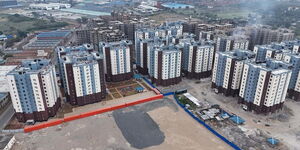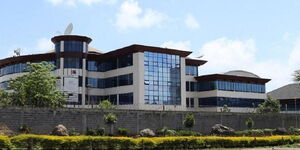A report detailing the Socio-economic impact of Covid-19 in the country released by the Kenya National Bureau of Statistics (KNBS) on Tuesday, May 19, 2020, revealed that a significant percentage of Kenyans were not able to pay their rent in the month of April.
Reduced income among members of the public was identified as the key reason why thousands were Kenyans defaulted on rent, just one month after the first Covid-19 case was reported in Kenya.
"Overall, 30.5% of households were unable to pay rent on the agreed date with the landlord. About 21.5% who usually pay rent on the agreed date with the landlord, were unable to pay rent for the month of April 2020 on time."
Only about 60% of Kenyans who ordinarily would have been able to pay their rent on time were able to do so in April.
Approximately 59.8% of those who usually pay rent on the agreed date were able to pay rent for the month of April on time," the report read in part.
The KNBS report indicated that 52.9% of Kenyan households in the country recorded reduced incomes.
Almost half of the respondents in the survey who were absent from work reported that it was due the government's Covid-19 guidelines .16% cited temporary slack while 13% temporary layoff as the reasons for being home.
"Persons who reported that they were absent from work due to stay away or lockdown were asked when they expected to return to work. Nine out of ten were not sure of when they would be returning to work," the report further stated.
In the transport sector, there was an average 51.7% increase in fares on the majorly plied routes across the country. However, some counties recorded more drastic increments than others.
Migori County recorded the highest increase in at 77.2% while Turkana County recorded the least at 24.4%.
"About 32.2% of the persons who used any means of transport in the last 7 days reported that they had walked. Public Service Vehicles (Matatu and bus) were used by 25.5% of the population while 18.9% used motorbikes," the report reads in part.
Findings from the survey indicated that almost a fifth of households reported having a member with a pre-existing medical condition.
"The rapidly evolving situations of Covid-19 demand for continuous change in ways of monitoring the economic situation of the country. This calls for constant review of measurement tools in order to capture the immediate concerns and issues that require urgent government response.
"Consequently, the Bureau will review the indicators which will be captured in the next wave of the survey. This will ensure that any new situation arising from the disease is captured in order to enhance the quality of the collected data. The second wave of data collection across the country is expected to begin on May 21, 2020, for 6 days," the report concluded.












